Click here and press the right key for the next slide.
(This may not work on mobile or ipad. You can try using chrome or firefox, but even that may fail. Sorry.)
also ...
Press the left key to go backwards (or swipe right)
Press n to toggle whether notes are shown (or add '?notes' to the url before the #)
Press m or double tap to slide thumbnails (menu)
Press ? at any time to show the keyboard shortcuts
Framing Changes Ethical Attitudes

5
‘we hypothesized that exposing conservatives to proenvironmental appeals based on moral concerns that uniquely resonate with them will lead them to view the environment in moral terms and be more supportive of proenvironmental efforts.’
Feinberg & Willer, 2013 p. 2
Background
Study 2: ‘environmental rhetoric [...] resides primarily within the harm/care moral domain’
Feinberg & Willer, 2013 p. 4
Study 3 : read a persuasive message
‘[harm/care] ... the harm and destruction humans are causing to the environment and emphasized how important it is for people to care about and protect the environment.’
‘[purity/sanctity] ... how polluted and contaminated the environment has become and how important it is for people to clean and purify the environment.’
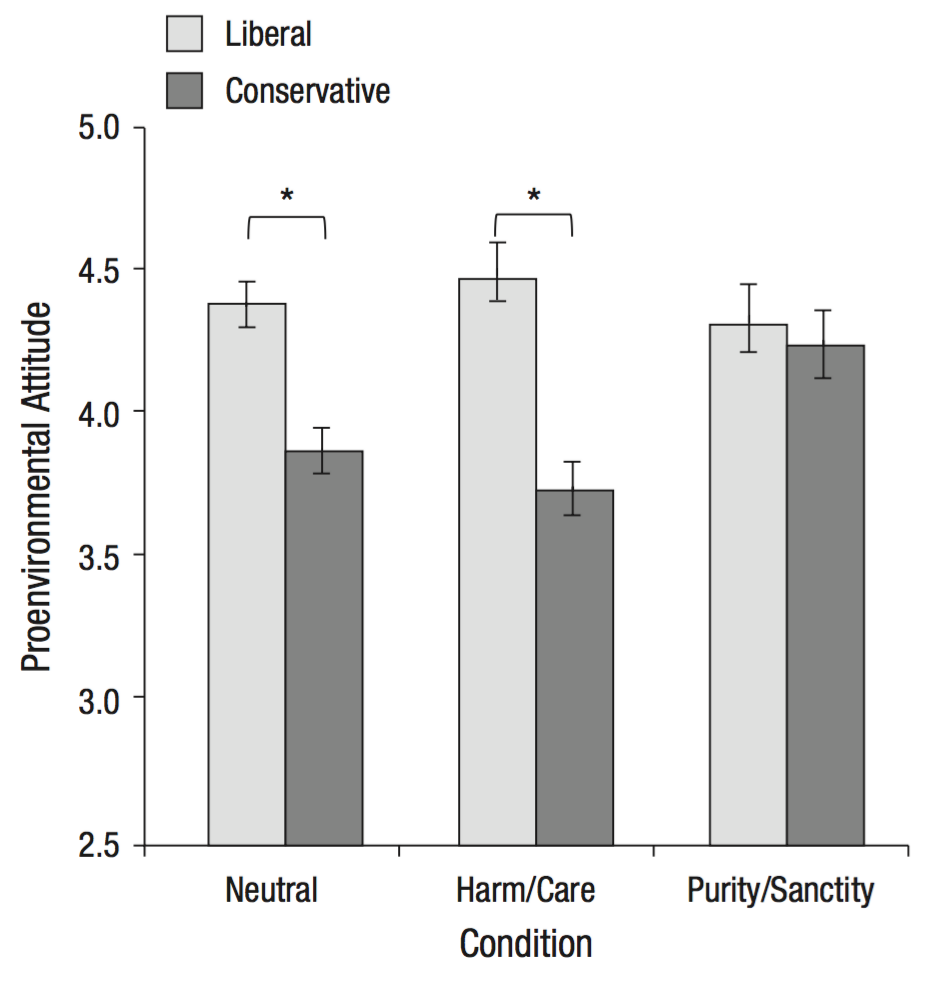

Feinberg & Willer, 2013 figure 2

a twist
‘We found parallel results regarding belief in global warming. Conservative participants reported greater belief in global warming when exposed to the purity/sanctity message than to the harm/care [...] or neutral message’ (Feinberg & Willer, 2013, p. 5).
related finding
‘climate change skepticism was lower in the common ingroup condition than in the binding and liberty condition.’ (Wolsko, 2017, p. 292)

5
‘we hypothesized that exposing conservatives to proenvironmental appeals based on moral concerns that uniquely resonate with them will lead them to view the environment in moral terms and be more supportive of proenvironmental efforts.’
Feinberg & Willer, 2013 p. 2

But can it change how people act?
Kidwell et al, 2013

‘You can make a difference by recyling because you know it’s the right thing to do. Your actions can help care for others and allow the greatest good for society. Because of people like you, we can reduce the harm to others and to the environment by recycling. You CAN make a difference’
‘You can join the fight by recycling with those like you in your community. Your actions can help us do our civic duty because recycling is the responsible thing to do in our society. Because of people like you, we can follow the advice of important leaders by recycling. You CAN join the fight!’
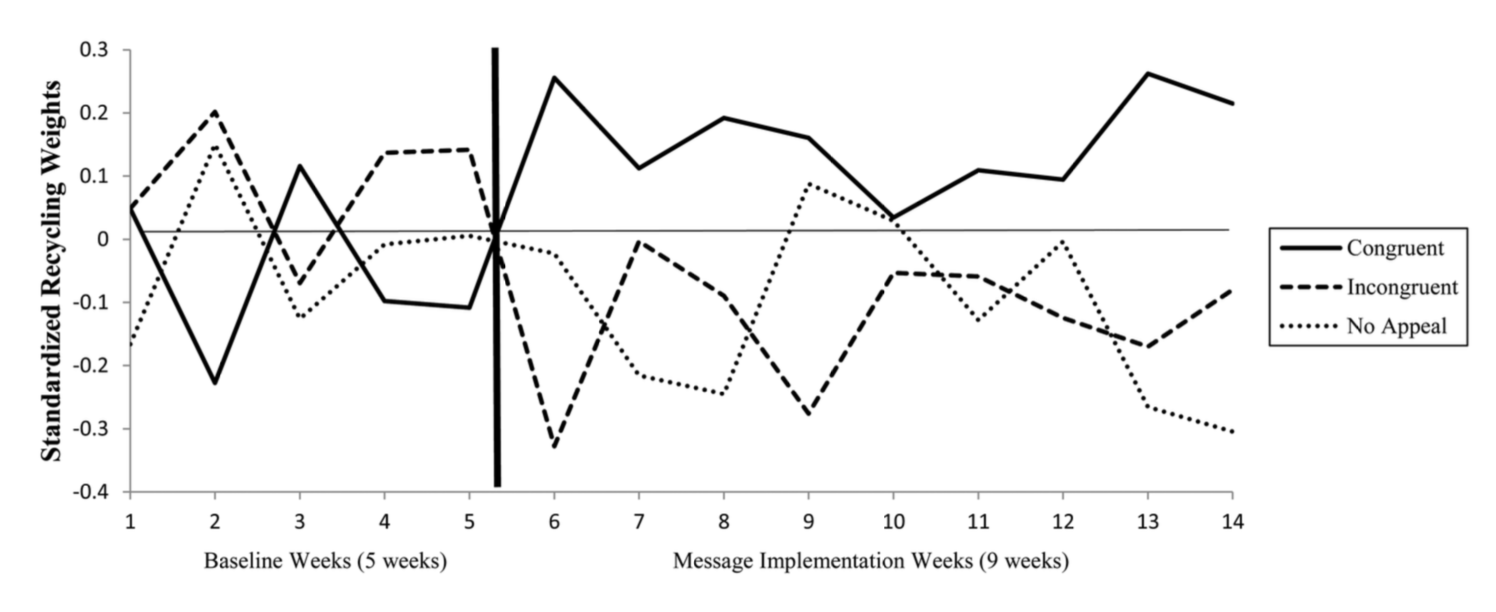
Kidwell et al, 2013 figure 4
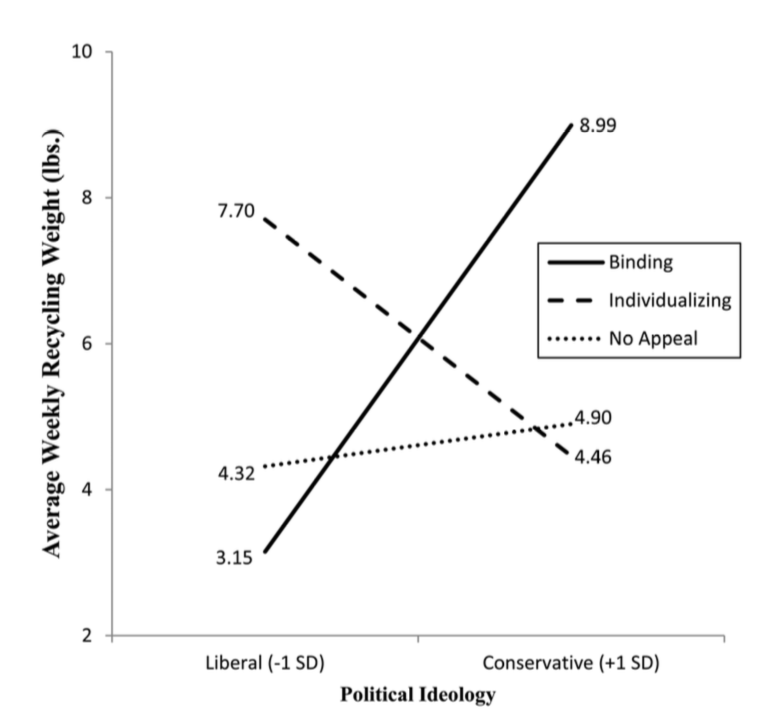
Kidwell et al, 2013 figure 3

another study
Wolsko et al. (2016, p. figure 5)

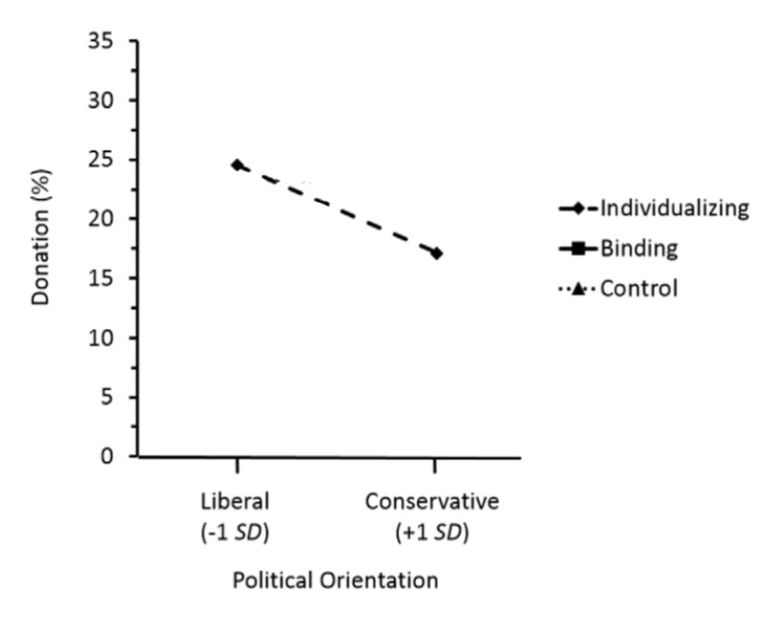

Wolsko et al. (2016, p. figure 5)

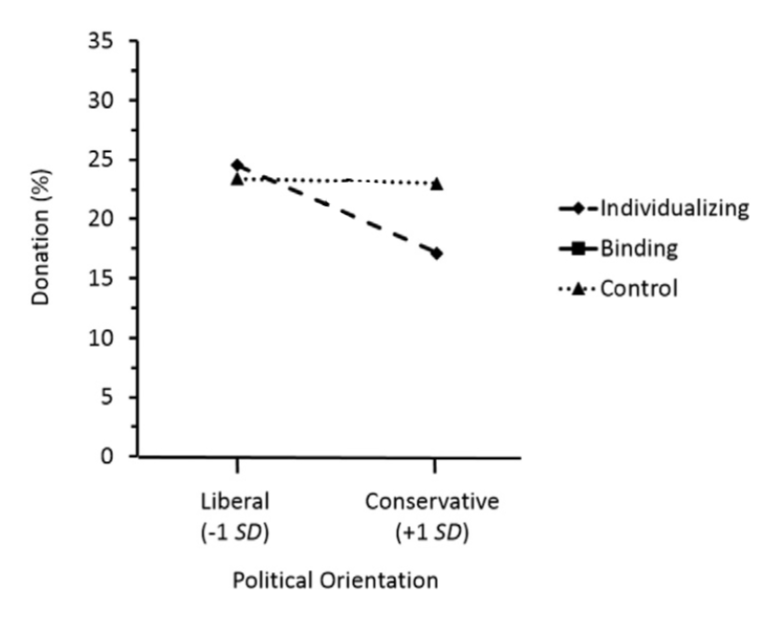

Wolsko et al. (2016, p. figure 5)

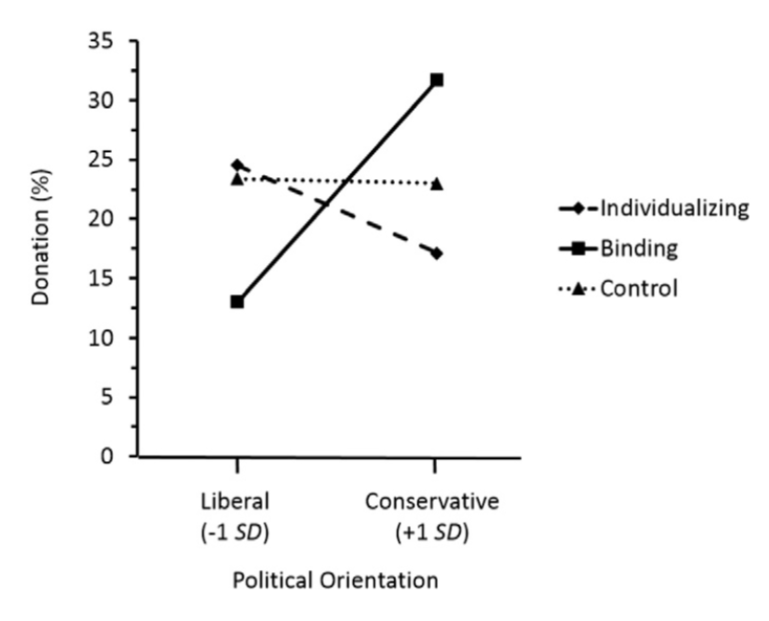

Wolsko et al. (2016, p. figure 5)

5
‘we hypothesized that exposing conservatives to proenvironmental appeals based on moral concerns that uniquely resonate with them will lead them to view the environment in moral terms and be more supportive of proenvironmental efforts.’
Feinberg & Willer, 2013 p. 2
Can liberals’ attitudes on typically conservative issues also be changed using a similar ethical framing strategy?
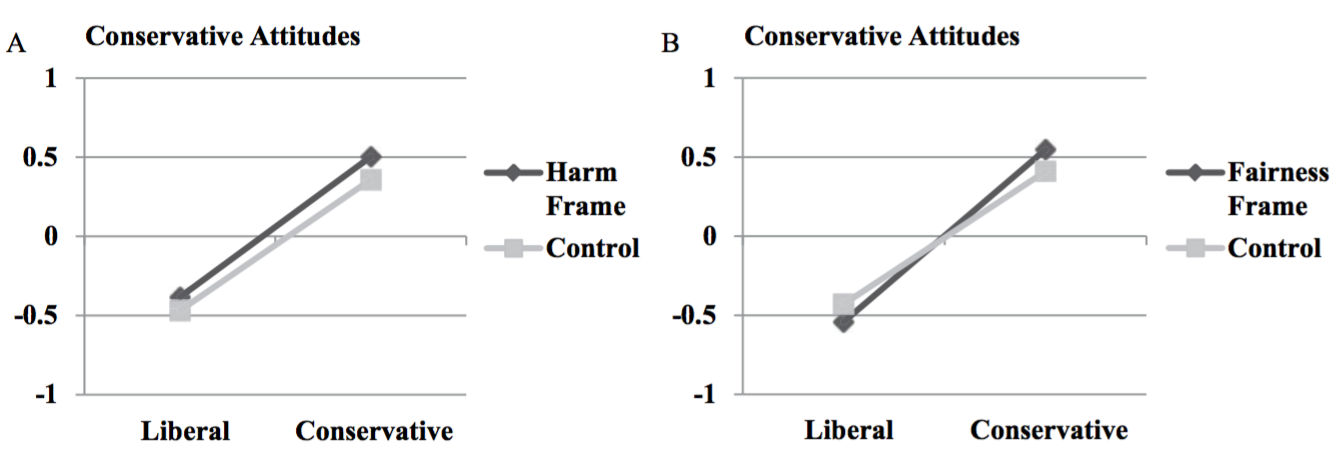
‘the spare sentence-long, stimuli used in the studies’
(Feinberg & Willer, 2015 p. 1667)
‘Education/Harm: We must care for our children by having the freedom to put them in schools that match their parents’ wishes.’
‘Immigration/Fairness: It is only fair to preserve the rights of long-term citizens ahead of recent immigrants.’
Day et al, 2014 figure 1A-B
Can liberals’ attitudes on typically conservative issues also be changed using a similar ethical framing strategy?
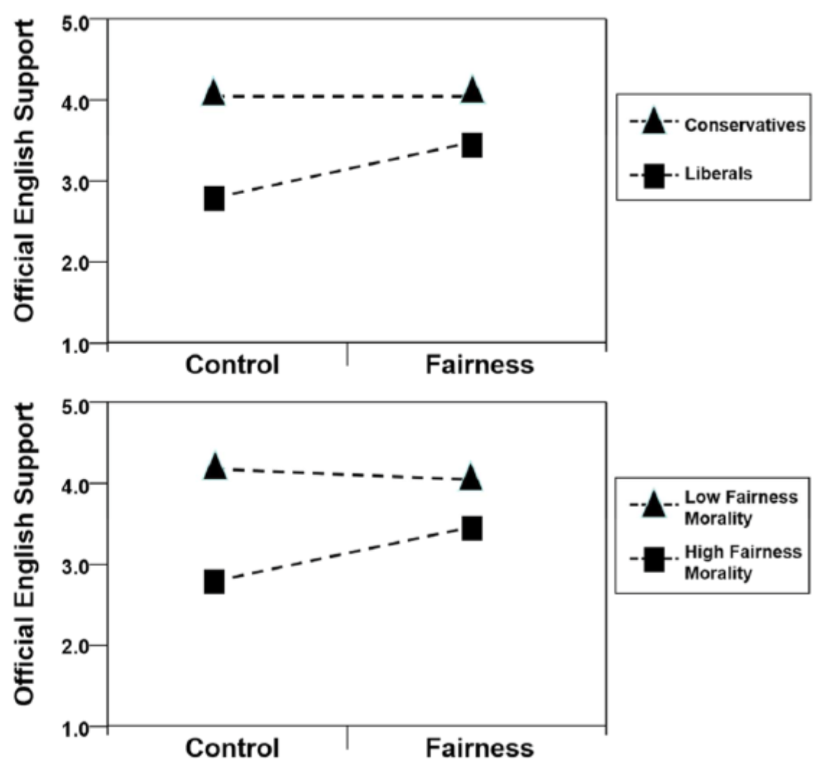
Feinberg & Willer, 2015 figure 6 (on Study 6)
Can liberals’ attitudes also be changed using a similar ethical framing strategy?
Day et al, 2014 : no evidence of persuasion for liberals (but for conservatives)
Feinberg & Willer, 2015 : yes

Aside: If moral reframing is effective, why isn’t it used more?
(Feinberg & Willer, 2015)